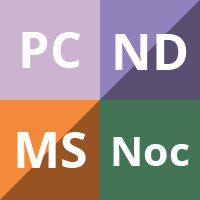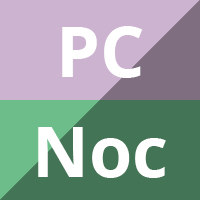
Palliative pharmacological sedation for terminally ill adults
Abstract Background Terminally ill people experience a variety of symptoms in the last hours and days of life, including delirium, agitation, anxiety, terminal restlessness, dyspnoea, pain, vomiting, and psychological and physical distress. In the terminal phase of life, these symptoms may become refractory, and unable to be controlled by supportive and palliative therapies specifically targeted […]

Pharmacological treatments for fatigue associated with palliative care
Abstract Background This review updates the original review, ‘Pharmacological treatments for fatigue associated with palliative care’ and also incorporates the review ‘Drug therapy for the management of cancer-related fatigue’. In healthy individuals, fatigue is a protective response to physical or mental stress, often relieved by rest. By contrast, in palliative care patients’ fatigue can be […]

Droperidol for treatment of nausea and vomiting in palliative care patients
Abstract Background This is an updated version of the original Cochrane review published in Issue 10, 2010, on droperidol for the treatment of nausea and vomiting in palliative care patients. Nausea and vomiting are common symptoms in patients with terminal illness and can be very unpleasant and distressing. There are several different types of antiemetic […]

Nutritional interventions for preventing and treating pressure ulcers
Abstract Background Pressure ulcers affect approximately 10% of people in hospitals and older people are at highest risk. A correlation between inadequate nutritional intake and the development of pressure ulcers has been suggested by several studies, but the results have been inconsistent. Objectives To evaluate the effects of enteral and parenteral nutrition on the prevention […]

Botulinum toxin for upper oesophageal sphincter dysfunction in neurological swallowing disorders
Abstract Background Adequate upper oesophageal sphincter (UOS) opening is critical to safe and efficient swallowing due to the close proximity of the UOS to the airway entrance. Many people with neurological conditions, progressive and non-progressive, present with UOS dysfunction. The consequences for the person include difficulty swallowing food with subsequent choking and aspiration (passage of […]

Medically assisted hydration for palliative care patients
Abstract Background Many palliative care patients have reduced oral intake during their illness. The management of this can include the provision of medically assisted hydration with the aim of prolonging the life of a patient, improving their quality of life, or both. This is an updated version of the original Cochrane review published in Issue […]

Medically assisted nutrition for palliative care in adult patients
Abstract Background Many palliative care patients have a reduced oral intake during their illness. The management of this can include the provision of medically assisted nutrition with the aim of prolonging the length of life of a patient, improving their quality of life, or both. This is an updated version of the original Cochrane review […]
Interventions for treating persistent and intractable hiccups in adults
Abstract Background Persistent and intractable hiccups (typically defined as lasting for more than 48 hours and one month respectively) can be of serious detriment to a patient’s quality of life, although they are relatively uncommon. A wide range of pharmacological and non-pharmacological interventions have been used for the treatment of persistent and intractable hiccups. However, […]

Spiritual and religious interventions for well-being of adults in the terminal phase of disease
Abstract Background As terminal disease progresses, health deteriorates and the end of life approaches, people may ask “Why this illness? Why me? Why now?” Such questions may invoke, rekindle or intensify spiritual or religious concerns. Although the processes by which these associations occur are poorly understood, there is some research evidence for associations that are […]

Interventions for the management of dry mouth : topical therapies
Abstract Background Xerostomia (the feeling of dry mouth) is a common symptom especially in older adults. Causes of dry mouth include medications, autoimmune disease (Sjögren’s Syndrome), radiotherapy or chemotherapy for cancer, hormone disorders and infections. Objectives To determine which topical treatments for dry mouth are effective in reducing this symptom. Search methods We searched the […]

